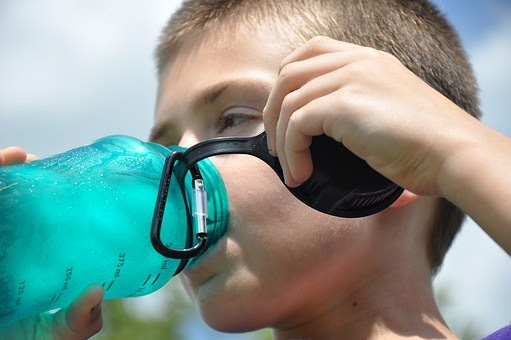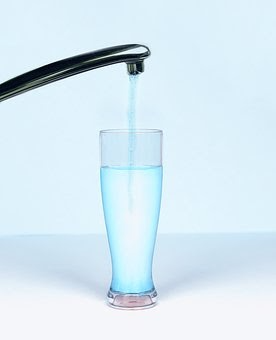The 5 Times in Life You Need To Test Your Water
Posted by Marketing Manager - Mike McBride on May 31st 2023

Life gets busy, and with so many things to think about, no one has time to stop and worry about the little details. Water safety never even crossed your mind. You trust your local water providers to work diligently and clean your water. But water can become contaminated several times after it leaves the water plant and before reaching your faucet. While testing your water won’t solve your contamination issues, it’ll let you know where to start. Here are the 5 times in life you need to test your water.
1) When there’s about to be a new baby in your household.
Babies are wonderful additions to any family, and keeping them safe, happy, and healthy is essential. Nitrate can pose a risk to your newborns as exposure to high levels can lead to “Blue Baby Syndrome,” which causes symptoms like difficulty breathing, vomiting, and in extreme cases, seizures. Fetuses and babies younger than 3 months old are at a higher risk, so it’s important to test your water for nitrates during pregnancy and after birth. Well owners should take even greater precautions since wells are more susceptible to high nitrate levels.

2) After you’ve moved into a new home.
Moving can be an exciting but stressful time. There’s so much to do and it seems like no matter how many boxes you unpack, you’ll never be done moving in. It’s hard to reason adding another task to your long to-do list, but when your home changes, your water does too. Water quality can be affected by the pipe materials, the geographical location of your home, and even the businesses that are around your area. Although there’s no need to test for every possible contaminant, there are a few water quality parameters that are important to test. Find some recommendations below for testing a variety of parameters.
3) Before you buy a water filter. 
Water filters seem like a quick solution to water contamination problems, and they can be. But what most people don’t know before they buy a water filter is that most water filters are built only to filter out specific contaminants while leaving others untouched. This means that if your water has bacteria contamination, you need a water filter capable of killing bacteria. Before buying a water filter, test your water so you know your investment will make your water contaminant free. While it’s great to have delicious water, it’s even better to have contaminant-free water.
4) After there’s been construction or plumbing work on your property.
Whether you're renovating your kitchen or just having that leaky pipe fixed, testing your water is important, as having work done can introduce contaminants into your water. It can be challenging to know what to test for after having work done, but below are some tips for the parameters to check.
5) When your parents start getting older.
It’s hard to think about your parents getting older, but it’s essential to consider how you can contribute to their well-being. Older and younger populations are more susceptible to illness than any other population. That’s why it’s crucial to test their water for harmful contaminants. The presence of bacteria, for example, can cause gastrointestinal problems, flu like symptoms, and loss of energy. For recommendations on what to test for to determine your water is safe, see the tips below.
Testing Recommendations:
1) For soon to be parents or new parents: Test for harmful, high nitrate levels with safe, easy-to-use WaterWorks™ Nitrate/Nitrite Tests to ensure your water is safe to drink.
2) For testing general water parameters to ensure your water is safe: Test for 9 of the most common, and most important water quality parameters with Safe Tap Check™ 9-Way Water Test Kit to ensure your home’s water is safe to drink.
Additional Tests:
If your family is experiencing frequent, and unexplained gastro-intensital issues, there may be bacteria present in your water. To get fast and accurate confirmation of bacteria presence, use Quick™ 15- Minute Bacteria Test.
https://sensafe.com/quick-15-minute-bacteria/
Article Sources:
https://www.medicalnewstoday.com/articles/321955.php
https://www.babycenter.com/0_how-to-tell-if-your-water-is-safe_469.bc
http://www.nesc.wvu.edu/ndwc/articles/QandA/OTf00_Q_A.pdf
https://www.waterfiltermag.com/
https://www.epa.gov/privatewells/protect-your-homes-water
https://www.realsimple.com/home-organizing/water-testing-kit-lead

